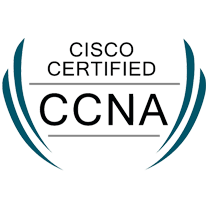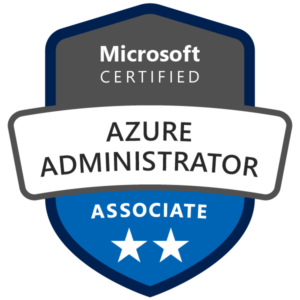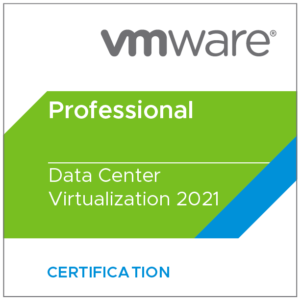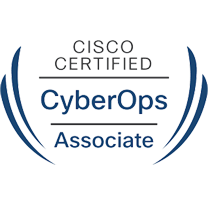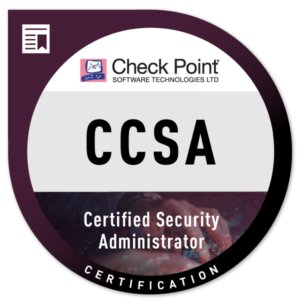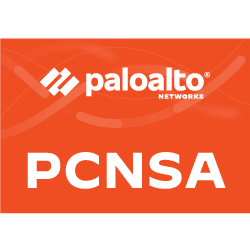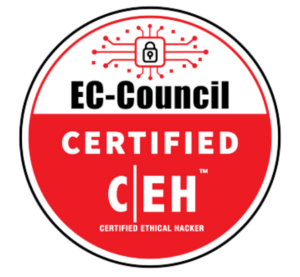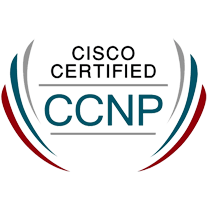Descrizione
…
Struttura del percorso formativo
Il percorso di coaching finalizzato al raggiungimento della certificazione è un bootcamp della durata complessiva di 60 ore organizzate in incontri di 4 ore di cadenza settimanale, per una durata complessiva di 3 mesi. In aggiunta sono previste un minimo di 36 ore di attività pratica integrativa, aggiuntiva a quella svolta in aula che viene svolta a distanza su laboratorio remoto Cisco CCIE. Tale laboratorio individuale è inoltre disponibile h 24 per attività di consolidamento da parte del partecipante.
Prerequisiti
- possesso della certificazione Cisco CCNP o completamento del percorso formativo equivalente, in alternativa
- da 3 a 5 anni di esperienza come network engineer
E’ previsto un colloquio tecnico di ingresso.
Contenuti CCIE R&S Written
Implement Layer 2 Technologies
- Implement Spanning Tree Protocol (STP)
- Implement VLAN and VLAN Trunking Protocol (VTP)
- Implement trunk and trunk protocols, EtherChannel, and load-balance
- Implement Ethernet technologies
- Implement Switched Port Analyzer (SPAN), Remote Switched Port Analyzer (RSPAN), and flow control
- Implement Frame Relay
- Implement High-Level Data Link Control (HDLC) and PPP
Implement IPv4
- Implement IP version 4 (IPv4) addressing, subnetting, and variable-length subnet masking (VLSM)
- Implement IPv4 tunneling and Generic Routing Encapsulation (GRE)
- Implement IPv4 RIP version 2 (RIPv2)
- Implement IPv4 Open Shortest Path First (OSPF)
- Implement IPv4 Enhanced Interior Gateway Routing Protocol (EIGRP)
- Implement IPv4 Border Gateway Protocol (BGP)
- Implement policy routing
- Implement Performance Routing (PfR) and Cisco Optimized Edge Routing (OER)
- Implement filtering, route redistribution, summarization, synchronization, attributes, and other advanced features
Implement IPv6
- Implement IP version 6 (IPv6) addressing and different addressing types
- Implement IPv6 neighbor discovery
- Implement basic IPv6 functionality protocols
- Implement tunneling techniques
- Implement OSPF version 3 (OSPFv3)
- Implement EIGRP version 6 (EIGRPv6)
- Implement filtering and route redistribution
Implement MPLS Layer 3 VPNs
- Implement Multiprotocol Label Switching (MPLS)
- Implement Layer 3 virtual private networks (VPNs) on provider edge (PE), provider (P), and customer edge (CE) routers
- Implement virtual routing and forwarding (VRF) and Multi-VRF Customer Edge (VRF-Lite)
Implement IP Multicast
- Implement Protocol Independent Multicast (PIM) sparse mode
- Implement Multicast Source Discovery Protocol (MSDP)
- Implement interdomain multicast routing
- Implement PIM Auto-Rendezvous Point (Auto-RP), unicast rendezvous point (RP), and bootstrap router (BSR)
- Implementmulticast tools, features, and source-specific multicast
- Implement IPv6 multicast, PIM, and related multicast protocols, such as Multicast Listener Discovery (MLD)
Implement Network Security
- Implement access lists
- Implement Zone Based Firewall
- Implement Unicast Reverse Path Forwarding (uRPF)
- Implement IP Source Guard
- Implement authentication, authorization, and accounting (AAA) (configuring the AAA server is not required, only the client-side (IOS) is configured)
- Implement Control Plane Policing (CoPP)
- Implement Cisco IOS Firewall
- Implement Cisco IOS Intrusion Prevention System (IPS)
- Implement Secure Shell (SSH)
- Implement 802.1x
- Implement NAT
- Implement routing protocol authentication
- Implement device access control
- Implement security features
Implement Network Services
- Implement Hot Standby Router Protocol (HSRP)
- Implement Gateway Load Balancing Protocol (GLBP)
- Implement Virtual Router Redundancy Protocol (VRRP)
- Implement Network Time Protocol (NTP)
- Implement DHCP
- Implement Web Cache Communication Protocol (WCCP)
Implement Quality of Service (QoS)
- Implement Modular QoS CLI (MQC)
- Implement Layer 2 QoS: weighted round robin (WRR), shaped round robin (SRR), and policies
- Implement link fragmentation and interleaving (LFI) for Frame Relay
- Implement generic traffic shaping
- Implement Resource Reservation Protocol (RSVP)
- Implement Cisco AutoQoS
Troubleshoot a Network
- Troubleshoot complex Layer 2 network issues
- Troubleshoot complex Layer 3 network issues
- Troubleshoot a network in response to application problems
- Troubleshoot network services
- Troubleshoot network security
Optimize the Network
- Implement syslog and local logging
- Implement IP Service Level Agreement SLA
- Implement NetFlow
- Implement SPAN, RSPAN, and router IP traffic export (RITE)
- Implement Simple Network Management Protocol (SNMP)
- Implement Cisco IOS Embedded Event Manager (EEM)
- Implement Remote Monitoring (RMON)
- Implement FTP
- Implement TFTP
- Implement TFTP server on router
- Implement Secure Copy Protocol (SCP)
- Implement HTTP and HTTPS
- Implement Telnet
Evaluate proposed changes to a Network
- Evaluate interoperability of proposed technologies against deployed technologies
- Determine operational impact of proposed changes to an existing network
- Suggest alternative solutions when incompatible changes are proposed to an existing network

